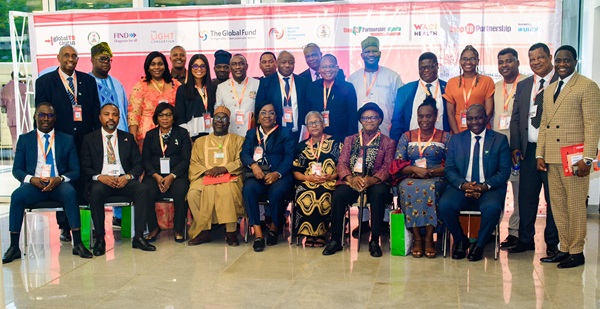
African parliamentarians, civil society organisations (CSOs), health experts and development partners have pledged to collaborate to end tuberculosis (TB) by 2030.
This commitment was made during Tuesday’s 5th Africa TB Summit in Abuja, hosted by the Global TB Caucus and its partners, including the Stop TB Partnership Geneva, the Global Fund, FIND, Light Consortium and WACI Health.
The summit, supported by Nigeria’s AIDS, Tuberculosis & Malaria Control Committee, convened stakeholders from 18 African countries to discuss actionable strategies for eliminating TB. Participants reviewed progress, explored solutions and focused on accelerating efforts toward the target set during the 2023 UN High-Level Meeting (UN HLM) on TB, which aims to end the disease by 2030.
A significant achievement of the summit was the adoption of the Abuja Statement on Financing to End TB in Africa. This document, co-developed by the Stop TB Partnership, the African Union and the Africa Parliamentary TB Caucus, outlines a roadmap for achieving TB targets through legislative engagement, increased funding and strengthened partnerships. This statement is vital as it sets the framework for collective action toward TB eradication in Africa.
The summit emphasised critical priorities in fighting TB:
1. Domestic Resource Mobilisation: Enhancing funding for TB prevention, diagnosis and treatment is essential. Increased financial resources can strengthen healthcare systems and provide the necessary tools for combating the disease.
2. Policy Reform: Enacting laws that improve TB care and reduce human rights violations related to the disease is crucial in ensuring equitable treatment for all individuals affected by TB.
3. Stigma Reduction: Addressing gender disparities and social determinants that affect TB outcomes is vital for promoting better health. The stigma surrounding TB often prevents individuals from seeking care, which ultimately impacts public health efforts.
4. Research and Development: Expanding investments in advanced diagnostics and innovative treatments is necessary for improving TB management and outcomes. Continued innovation can lead to more effective approaches to prevention and treatment.
5. Collaborative Efforts: Strengthening partnerships with CSOs, governments, and private entities is essential for driving advocacy and coordinated actions against TB. Collaboration allows for a more comprehensive response to the epidemic.
Summit participants committed to mobilising resources, enhancing legislative support and engaging communities to bridge gaps in TB prevention and care.
Prominent speakers highlighted the necessity of sustained efforts to combat TB. Chairman of the AIDS, Tuberculosis & Malaria Control Committee in Nigeria, Hon. Amobi Godwin Ogah articulated, “Parliamentarians are the bridge between commitments and action. We must hold ourselves accountable to drive TB eradication efforts.”
The chair of the Global TB Caucus, Lord Herbert of South Downs emphasised the importance of prioritising TB within national health policies and budgets. Executive director of The Global Fund, Mr. Peter Sands expressed optimism about Africa’s progress but stressed the need for ongoing investments in diagnostics and treatments to maintain momentum. Director of programmes at Global TB Caucus, Mrs. Deborah Ikeh advocated for proactive parliamentary engagement to ensure that commitments translate into tangible actions that improve TB outcomes.
The summit concluded with commitments to advocate for increased funding, strengthen partnerships, prioritise vulnerable groups, advance investment in innovative diagnostic tools and implement public awareness campaigns to combat stigma and discrimination.
As African nations adopt the Global TB Caucus 2025 Roadmap and implement the Abuja Statement, the summit reinforced the continent’s commitment to ending TB through collaborative efforts and innovative strategies, providing hope for a TB-free future by 2030.

